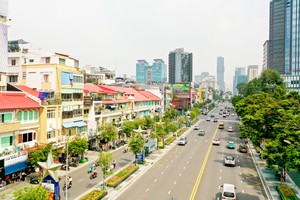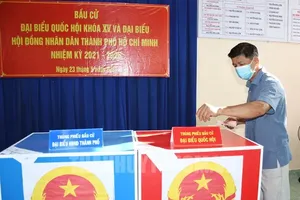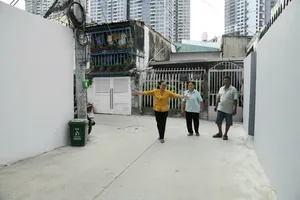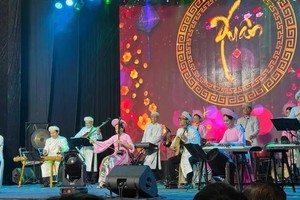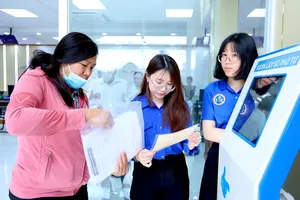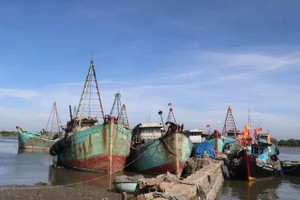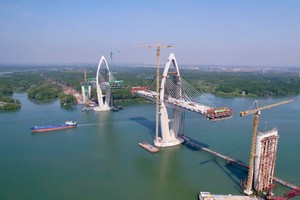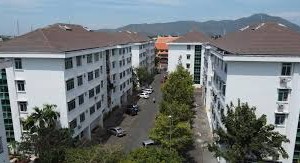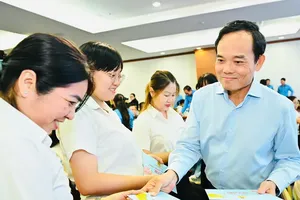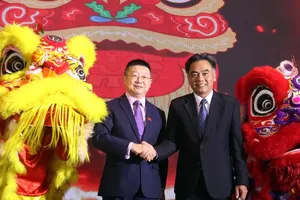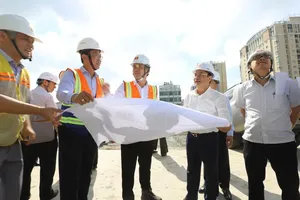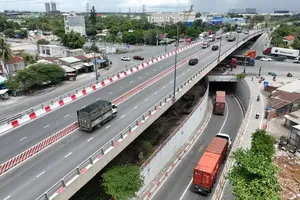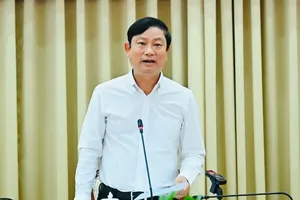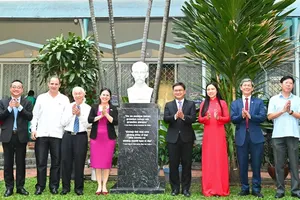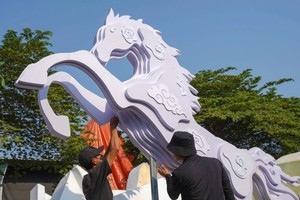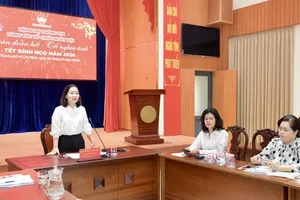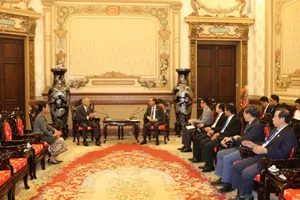The meeting, which included representatives from the Ministry of Finance and the Central Committee’s Policy and Strategy Commission, focused on the key requirements for establishing the new center.
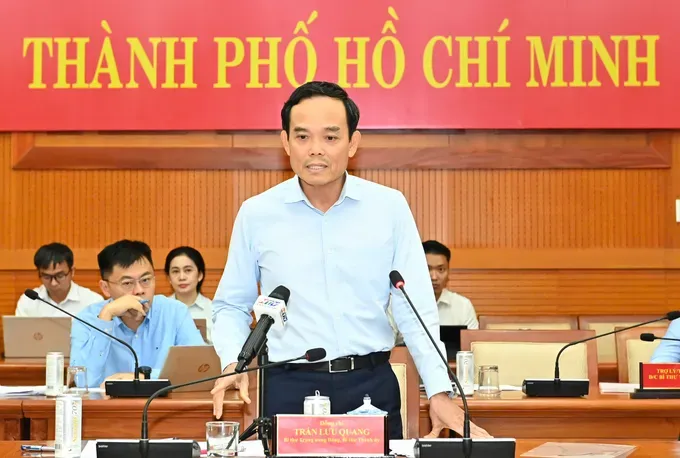
Secretary Tran Luu Quang emphasized the urgent need for specialized financial mechanisms and policy frameworks to attract top-tier experts and personnel. He also called for a prompt review of the city's planning to ensure the center's development adheres to all regulations.
Improving institutions, governance mechanisms and infrastructure
During the session, experts and officials from various departments offered feedback on the institutional framework, organizational structure, infrastructure, and human resources needed for the center's establishment. They also provided input on a draft decree for the creation of an International Financial Center in Vietnam.
Experts affirmed that the proposed 898-hectare development area is suitable for the center's growth. Economist Can Van Luc proposed four primary objectives for the Ho Chi Minh City International Financial Center:
- Promoting economic development in Ho Chi Minh City and the surrounding regions
- Efficiently mobilizing and allocating financial resources
- Improving the quality of traditional financial services while developing new products
- Contributing to overall institutional improvements
Deputy Minister of Finance Nguyen Thi Bich Ngoc stated that an international financial center is a distinctive organizations structure—essentially a “playing field” for major financial institutions such as banks, insurance companies, investment funds, and credit. Ho Chi Minh City has been designated to develop a comprehensive financial center, encompassing both traditional and innovative financial products and services.
For the center to develop in a substantive way, the Deputy Minister emphasized that beyond establishing a legal framework, it is crucial to offer specific and attractive financial products and services, such as commodity exchanges, derivatives, and fintech solutions. These, she noted, are key factors in building investor confidence, attracting capital, and affirming Vietnam's position within the global network of financial centers.
Drawing on international experience, the Deputy Minister highlights that investors are most concerned about a transparent and stable legal framework, protection of property rights and capital flows, mechanisms ensuring free movement of capital, dividends, and flexible exchange rates, as well as a globally competitive environment in terms of taxation, financial products, and services.
Adding to this, Deputy Head Nguyen Hong Son of the Central Committee's Policy and Strategy Commission stressed that Ho Chi Minh City must clearly define a suitable development model—both internationally oriented and aligned with the city's and the nation's needs. The international financial center formation should go beyond physical infrastructure to prioritize digital and technological infrastructure, enabling global integration and competitiveness.
Experts suggested that the Ho Chi Minh City International Financial Center should initially focus on traditional financial products such as banking and insurance, while expanding into emerging areas including international capital mobilization, fintech, financial derivatives, bonds, commodity exchanges, gold, carbon markets, and digital assets. To achieve this, clear criteria for selecting strategic investors must be established.
Former Deputy Director of the Central Institute for Economic Management, Vo Tri Thanh, remarked that the plan to develop the international financial center in Ho Chi Minh City is already fairly comprehensive, covering both traditional and new services, thereby ensuring long-term, sustainable growth.
He further emphasized that Vietnam's time zone advantage positions it well to capture global capital flows. Therefore, he called for the early introduction of a controlled 'sandbox' mechanism to pilot new models, alongside stronger support for innovation especially in fintech to prevent Vietnamese startups from seeking funding abroad. He also stresses that the center's management apparatus must be professional, operate under modern governance principles, and competitive incentives to attract top experts.
Attracting talented personnel is key to Int'l Financial Center's success
Associate Professor Tran Hoang Ngan, former Director of the Ho Chi Minh City Institute for Development Studies, stressed that the establishment of the International Financial Center requires clearly defined administrative boundaries for state management, while recognizing that financial transactions themselves are not geographically limited.
He also emphasized the importance of an independent supervisory body and robust investment in information technology infrastructure—identified as decisive factors for the center’s successful operation.
On the issue of human resources, experts agreed that talent remains the core driver. Associate Professor Tran Hoang Ngan noted that Ho Chi Minh City benefits from an abundant labor pool, which must be leveraged through policies designed to attract highly skilled professionals. Echoing this concern, Director Truong Minh Huy Vu of the Ho Chi Minh City Institute for Development Studies, emphasized the need to establish a consulting team and engage a professional advisory unit from the outset to ensure practicality and effective implementation.
Party Secretary of Ho Chi Minh City Tran Luu Quang welcomed these contributions and stressed the urgency of action. He called on the Steering Committee for the development of the International Financial Center to promptly form a Consulting Group and to draft both annual and five-year plans to closely track progress. He highlighted that personnel selection criteria must be rigorous, requiring strong foreign language proficiency and deep expertise in the financial sector.
Secretary Tran Luu Quang further emphasized the importance of developing tailored financial mechanisms and policies to attract experts and top talent. He urged the Steering Committee to examine this issue carefully while simultaneously reviewing the planning processes to ensure compliance with regulations.
He concluded by stressing that relevant agencies must devise concrete solutions in response to proposals and recommendations from both domestic and international investors, so that the center can operate effectively and meet expectations.
